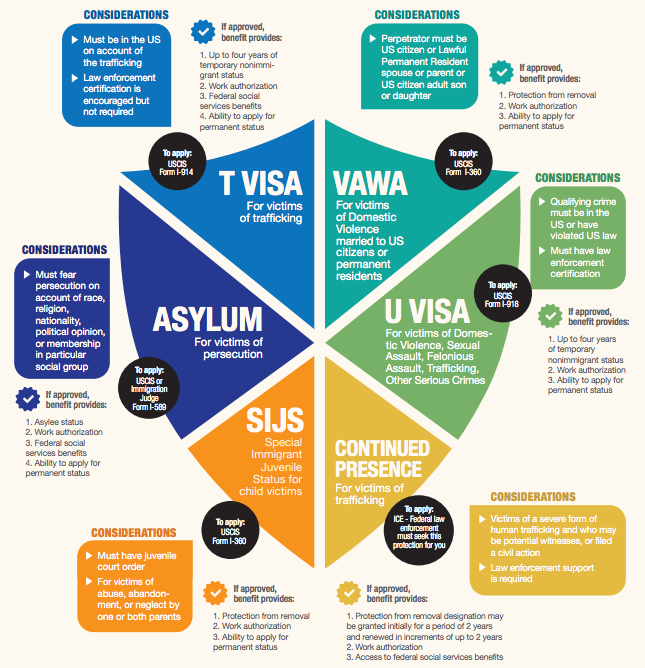The documents included in this section provide information about legal provisions, mainly immigration provisions in the Violence Against Women Act (VAWA), immigration laws, and international laws that offer protection and assistance to immigrant survivors of domestic violence. Please note that some of the documents in this section may become dated over time because laws and regulations tend to change. For current resources, please consult the expert organizations listed at the end of this collection.
"In the U.S., victims of crime, regardless of their immigration or citizenship status, can access help from law enforcement or the courts, as well as help provided by government or non-governmental agencies, which may include counseling, interpreters, safety planning, emergency housing and possibly monetary assistance" (U.S. Citizenship and Immigration Services).

"While these immigration remedies can provide a critical pathway to safety for many immigrant survivors, the reality is that most immigrant victims of domestic violence, sexual assault, stalking, and trafficking are unable to learn about their rights and access these protections unless they are able to obtain the assistance of a trained advocate, as well as additional supportive services that are trauma-informed and linguistically accessible. Therefore, domestic violence and sexual assault service providers play a critical role in providing a life-changing bridge to safety and well-being for immigrant survivors and their children" (Hidalgo, 2017).









